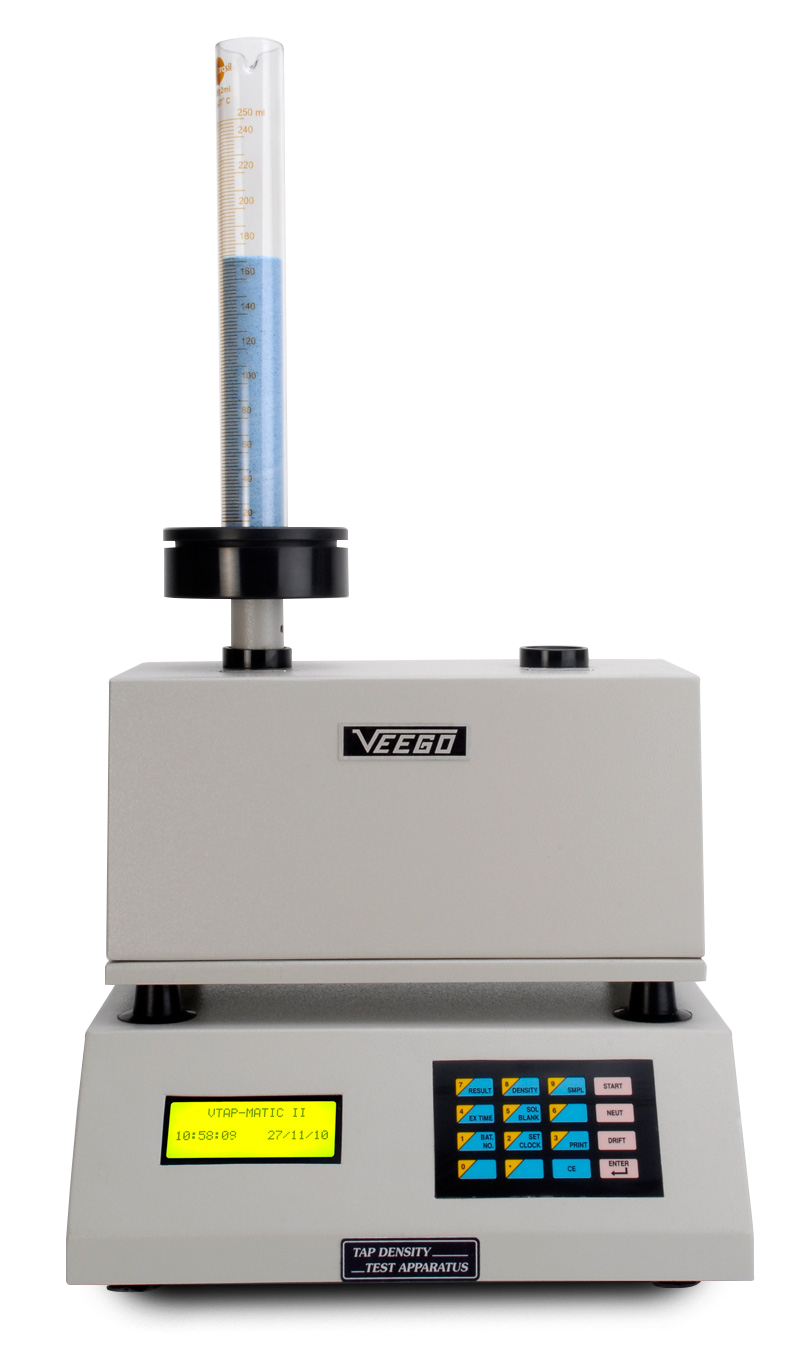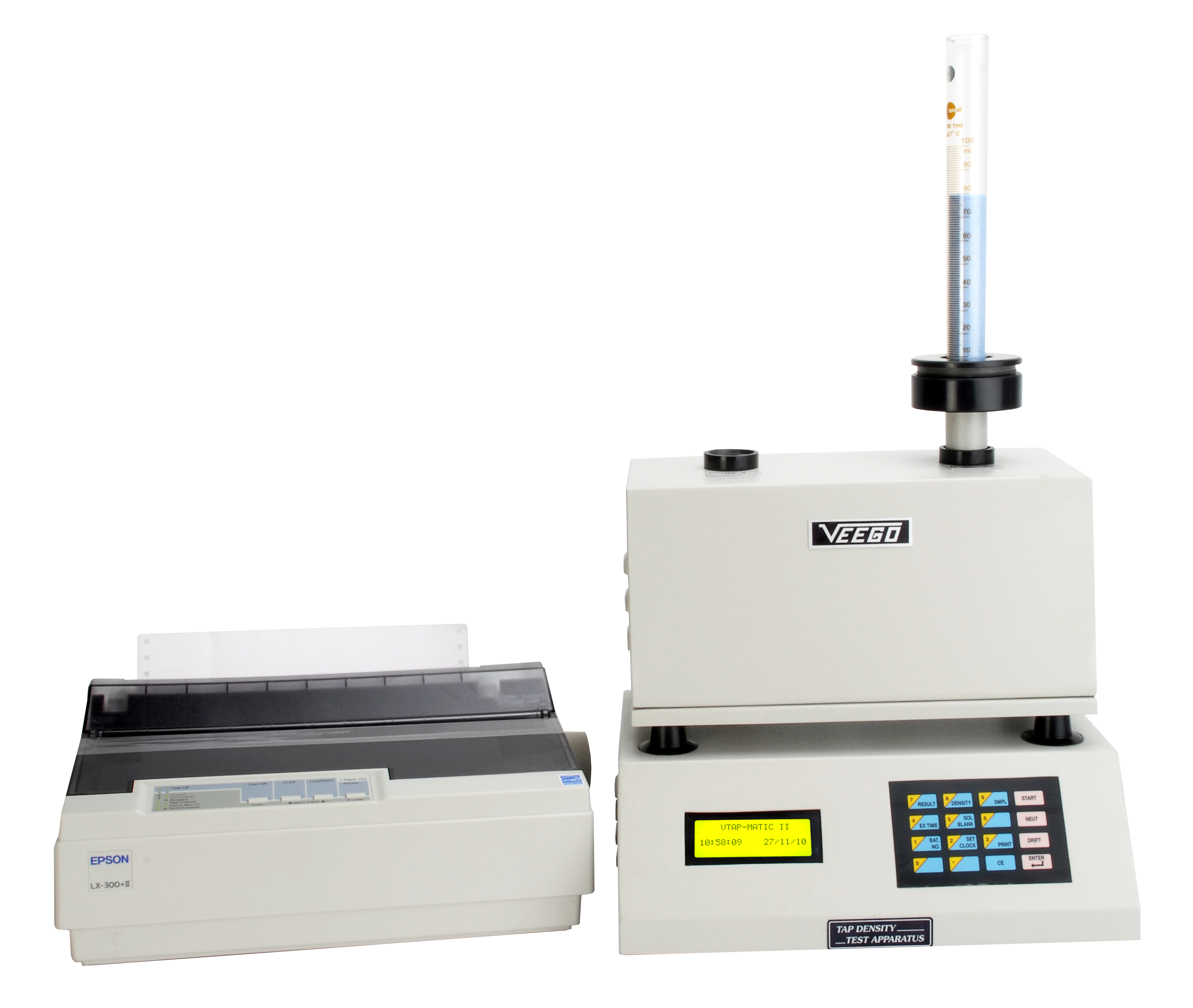Microcontroller-Based Precision: The VTAP/MATIC-II employs advanced microcontroller technology, ensuring precise and accurate tap density measurements.
Method Versatility: Support for both USP-I and USP-II methods, with optional compatibility for ASTM methods, providing flexibility for various testing requirements.
Clear Backlit LCD Display: An easy-to-read 20 x 4 lines alphanumeric LCD display offers comprehensive information during testing, enhancing user visibility.
Consistent Stepper Motor Drive: The stepper motor drive mechanism ensures consistent tapping and rotating motions, contributing to reliable and reproducible results.
Built-In Validation Facility: A built-in validation feature confirms measurement accuracy, enhancing the reliability of test results.
User-Friendly Interaction: The feather touch keyboard with 16 keys facilitates intuitive and user-friendly parameter input, simplifying operation.
Efficient Data Output: Equipped with a parallel printer interface, the apparatus supports seamless data output to compatible EPSON Dot Matrix Printers.
Real-Time Status Updates: Stay informed about test progress through online messages and real-time status updates displayed during operation.
Comprehensive Parameter Entry: Alphanumeric data entry allows precise input of various test parameters, ensuring customization for different testing scenarios.
Automated Testing: The auto tap repeat feature enables continuous testing until completion, streamlining and expediting the testing process.
Key Parameter Calculations: The apparatus performs essential calculations, including Bulk Density, Tapped Density, Compressibility Index, and Hausner Ratio.
Error Prevention: Integrated error messages prevent incorrect data entry, ensuring the generation of accurate and reliable test results.
GLP-Compliant Printouts: The apparatus generates printouts in compliance with Good Laboratory Practice (GLP) requirements, maintaining rigorous documentation standards.
Ample Storage: Store and manage up to 24 test methods, providing convenient access to preferred testing protocols.
Secure Data: Data security is ensured through password protection, preventing unauthorized editing of stored information.
Simultaneous Rotation and Tapping: The apparatus enables simultaneous rotating and tapping of cylinders, contributing to consistent and dependable test outcomes.
Test Methods: USP I and USP II (Optional: ASTM)
USP I Method: Tap Height - 14 mm ± 2 mm, Tapping Rate - 300 taps/min approx.
USP II Method: Tap Height - 3 mm ± 10% (± 0.3 mm), Tapping Rate - 250 taps/min approx.
Built-in Validation Facility for accuracy assurance.
Tap Range: 1 – 9999 Taps
Simultaneous Rotating and Tapping of Cylinders for precise results.
Drive: Stepper Motor Drive
Display: 20 x 4 Lines Alphanumeric Backlit LCD
Keyboard: 16 Keys Feather Touch Keyboard
Printer Interface: Parallel printer port for EPSON Dot Matrix Printer
Supported Printers: 80 Column Dot Matrix
Power Supply: 220/230 V AC, 50/60 Hz, 2 Amp Max
Dimensions (mm): 360 L x 260 W x 360 H (Approx.) without cylinders
Weight: Nett —17 kg Gross — 25 kg (Approx.)



